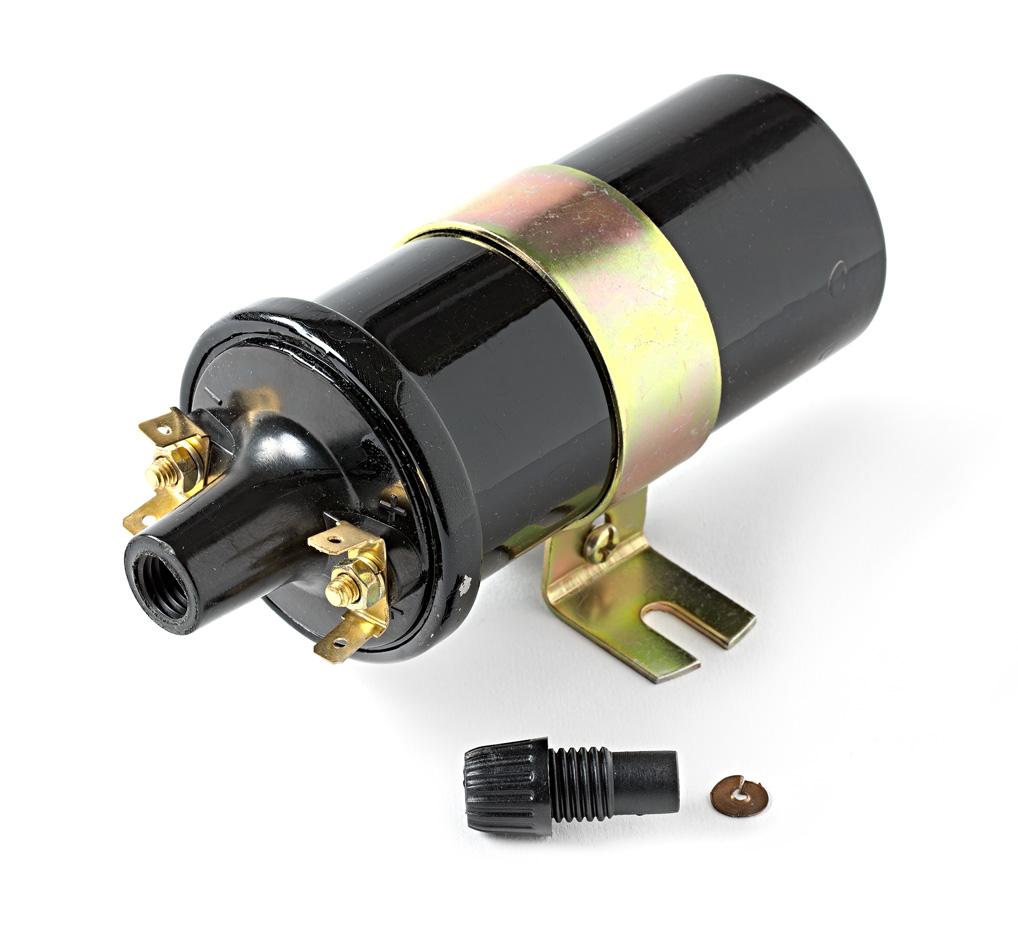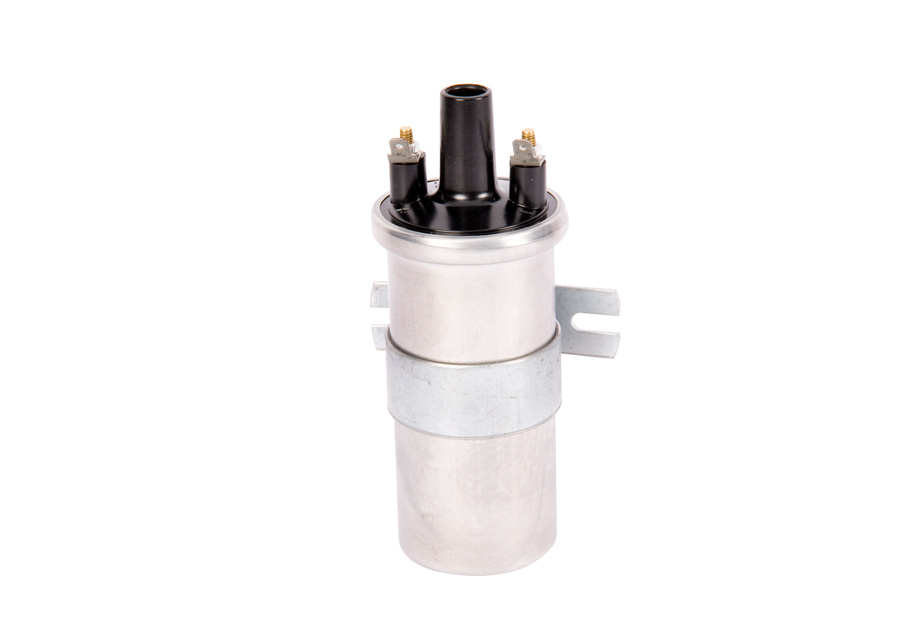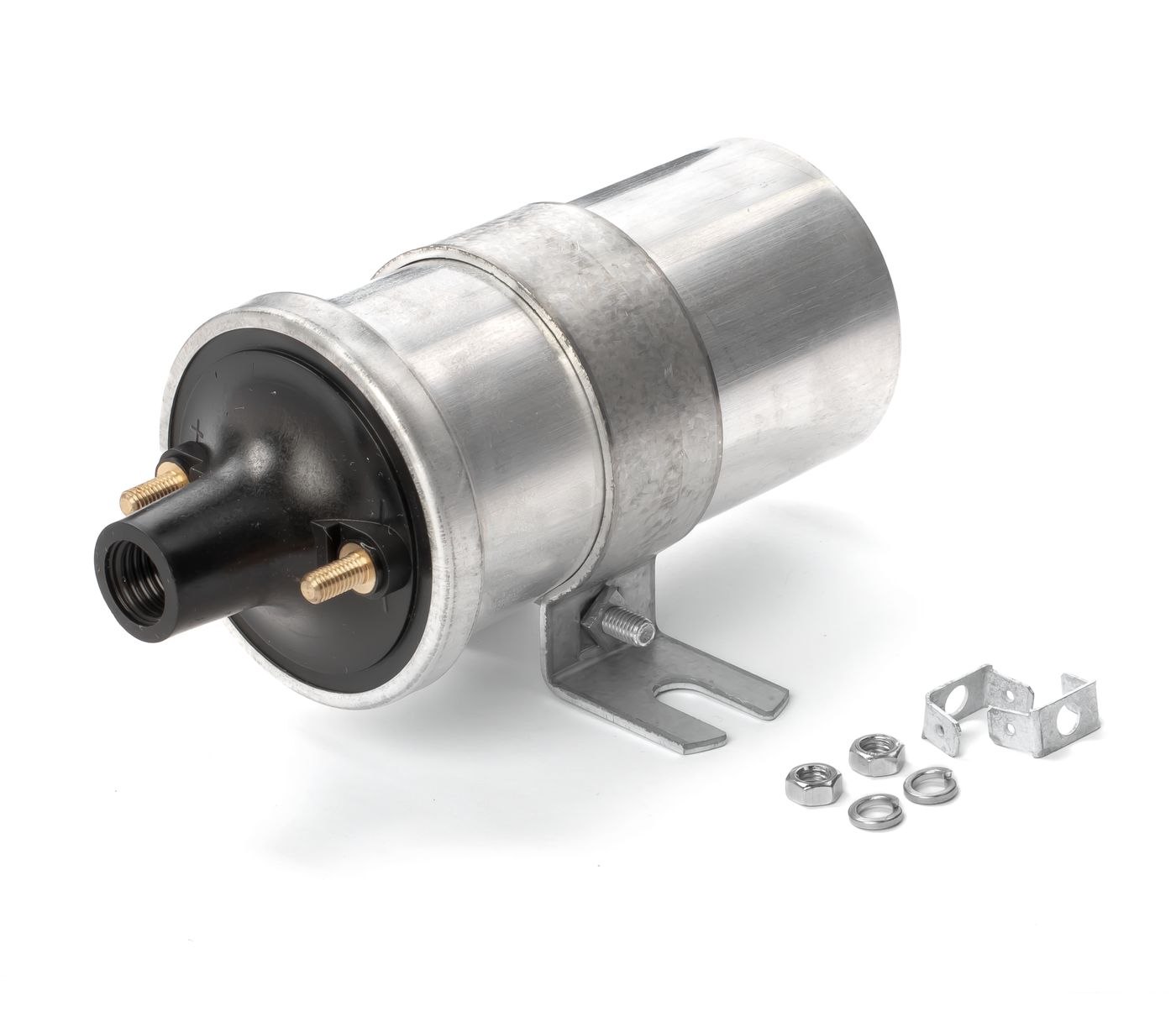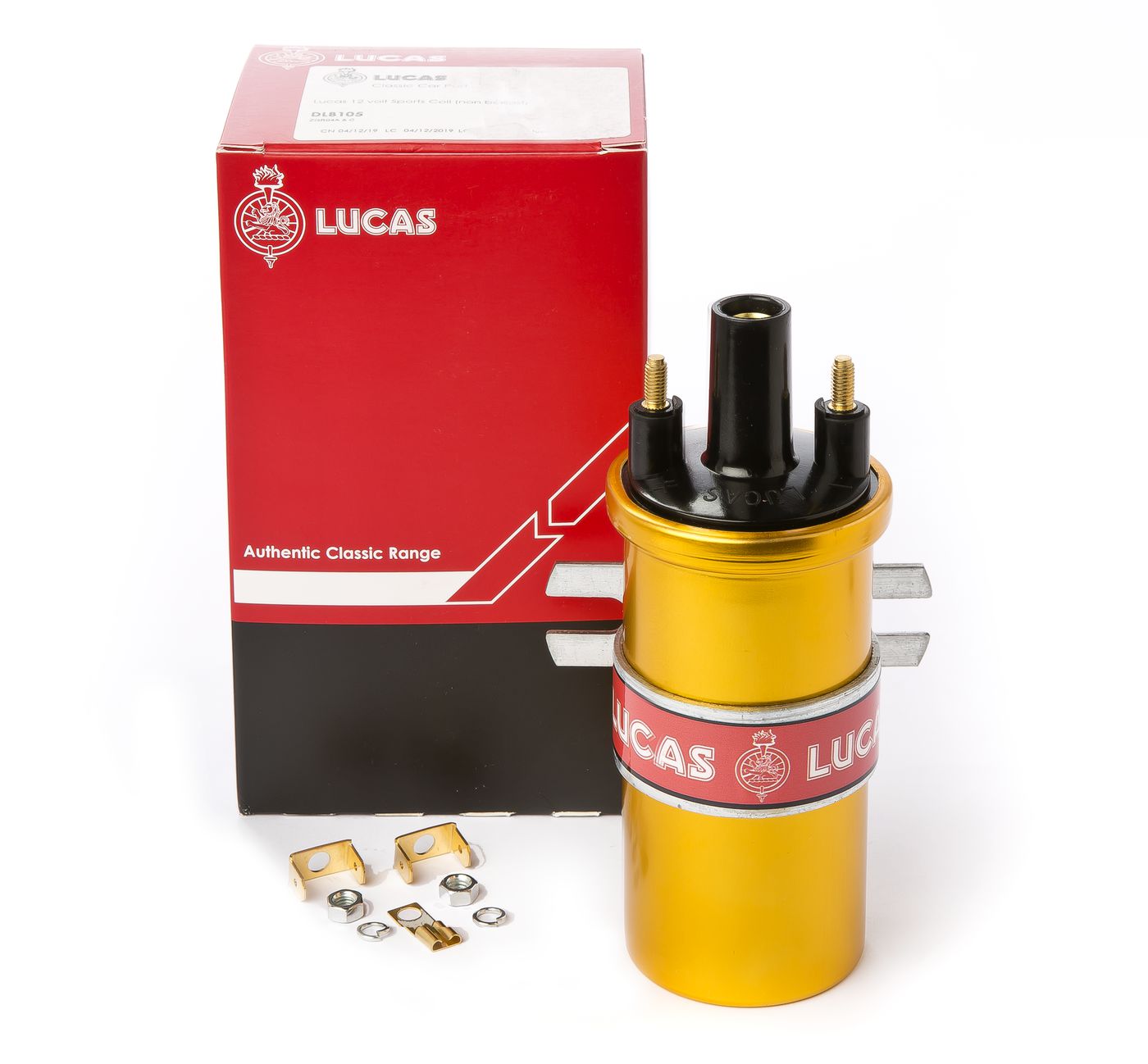Ignition coil
Land Rover: Series II and IIA 4 cylinder Petrol (1958-71)
MG: TA, TB, TC, TD and TF (1936-55) • YA, YB and YT (1947-53) • MGA (1955-62) • MGB to November 1967 (Roadster to GHN3-138360, GT to GHD3-137795)
Aston Martin: DB2 (1950-53) • DB2/4 (1953-57) • DB Mark III (1957-59)
Jaguar: XK120, XK140 and XK150 (1949-61) • Daimler 250 V8 Saloon (1962-69) • Daimler Dart SP250 (1959-64) • Mk7, Mk8 and Mk9 (1950-61)
Sprite / Midget: 948, 1098 and 1275 (1958-74)
Triumph: Herald (1959-71) • TR2, TR3, TR3A, TR3B, TR4 and TR4A (1952-67)
Morris: Minor with 803 cc, 948 cc and 1098 cc engines (1952-71)
Alvis: TA 21 and TB 21 (1950-53) • TC 21/100 (1953-55) • TC 108/G (1955-58) • TD 21 (1958-64) • TE 21 (1964-66) • TF 21 (1966-67)
with black body, screw-in HT lead terminal and approx. 2.8 Ohm primary resistance. Non ballasted type
Ignition coils have a “+” (POS) and a “-” (NEG) next to each of it’s two low voltage terminals. That’s because coils need to have the same polarity as your system: wiring backwards will weaken the spark. The wire that goes between the distributor points and the low voltage terminal on your coil, the low tension lead, should be connected to the terminal that is labelled for the same polarity as your battery ground. For instance in an early positive earth British Classic Car, the low tension lead should attach at the terminal marked “+” (POS). If that same vehicle were converted to negative earth the coil should be turned 180 degrees in the holder and the wire connected to the “-” (NEG) terminal.



